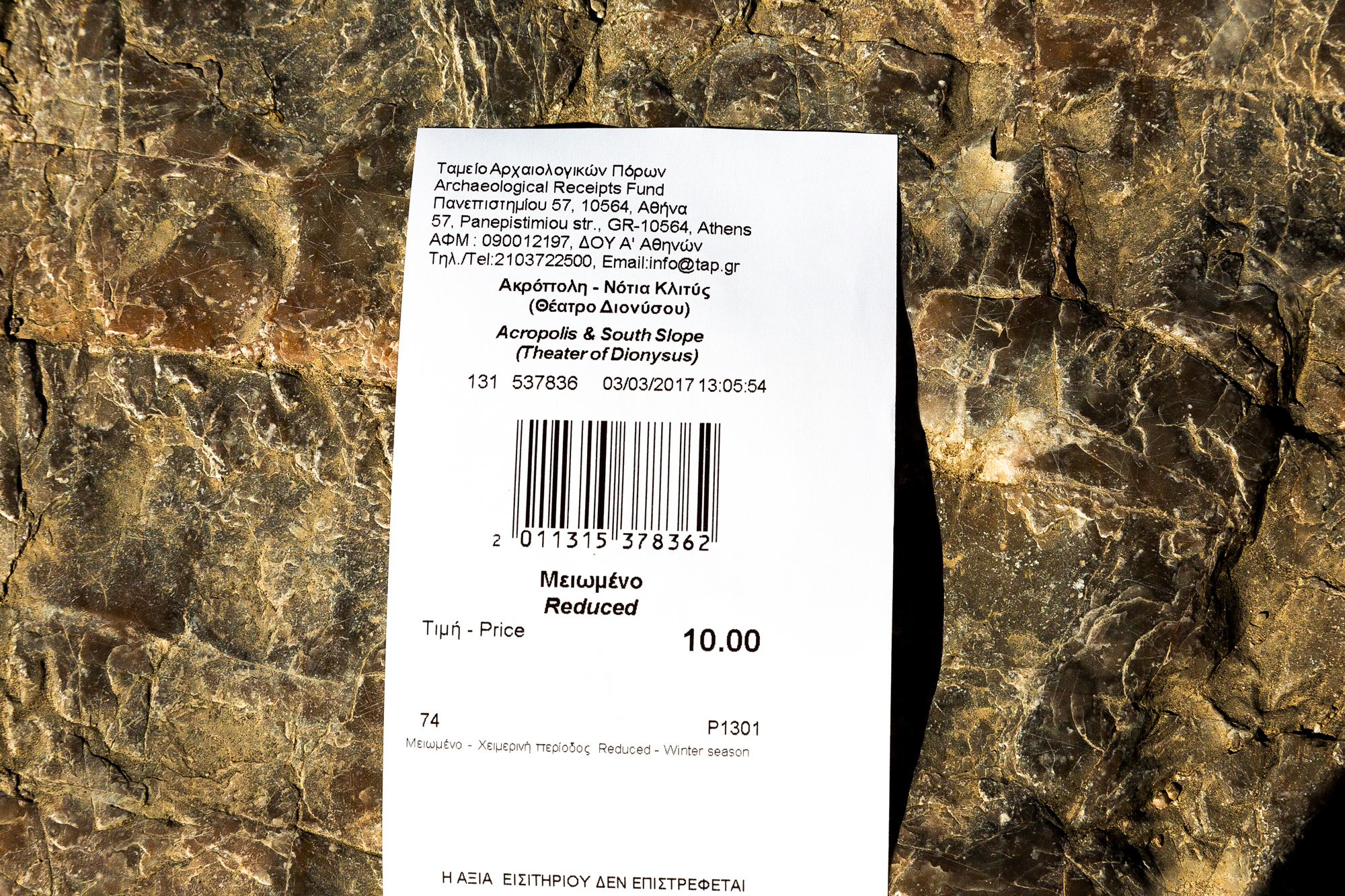Reduced: Uninfluential, Disintegrated, and Bent is a new exhibition and sculptural installation by Lanfranco Aceti. With a series of writings on paper, paintings, photocopies of stones, foliage, and grass, rolled out fax paper, videos, and vinyl cutouts the exhibition explores the meaning of reduced forms of democracy and citizenships. The consumption of what is left, the remainder to use Baudrillardian terminology, is a hypermarketed but nevertheless a diminished experience. It is a consumption of the already consumed—a hyperphagia of waste based on the social needs of devouring and re-appropriating a grandeur inherited but never conquered.
Started in Athens, on the Parthenon, the exhibition builds up on previous international exhibitions, performances, and works of art by Lanfranco Aceti, continuing an imaginary dialogue—started in 2008 with the Great Recession—between the artist and the nation state. The meaning of the word society, according to the artist, changes as the crisis deepens touching evermore larger numbers of people. Civility, culture, and ideals in what is the general and most obvious discourse fall prey to basic needs and feelings of anger, demands for revenge, and acts of violence. What institutions and people fail to acknowledge are their own shortcomings, their own collusions, and their own participation in a systematic oppression of disenfranchised people who are pushed to the margins and constantly tempted with the delusion of yet another version of the ‘self-made-man’ and reprimanded for their ‘own’ failures, shortcomings, and impossible existential conditions. Their inability to reach the status of ‘self-made-man’, is a fundamental flaw of their personality, genetic, surroundings.
Plauto in the Asinaria wrote homo homini lupus, with the attributed classic interpretation of the ferociousness that man displays towards his fellow man. The works of art start from the Parthenon, as an emblematic locus, and reanalyze the failures of contemporary reinterpretation of democracy. They reflect, two years later, on the statement by Horace that conquered Greece took captive her savage conqueror and brought her arts into rustic Latium (Graecia capta ferum victorem cepit et artes intulit agresti Latio in Book II, Epistle 1, lines 156-157). The exhibition constructs a different understanding of what learning from Athens should have meant outside the curatorial, and rather timely, ungrandiose failure of documenta14.
“By some Romans, Greek contributions to artistic and intellectual life were deemed exemplary; for others, Greek intellectual and popular culture represented a composite of sordid threats to solid Roman values—although by the middle of the 2nd century B.C. this latter view was surely waning. From then on, Romans tended to idolize not only Greece’s past glory, but those Greeks whose creation it was, as well.” [1]
The artist chose this particular quote in order to showcase a) the complexity of the relationship between Rome and Greece, b) the nuances of the process of learning from each other, and c) the historical stratifications and the inheritances of these relationships across centuries that were swept under the carpet of self-aggrandizing attempts at celebrity art and celebrity curating.
The article, from which the above quote was taken, is published in a volume titled Greece in Rome: Influence, Integration, Resistance. The volume could be rewritten and reframed in contemporary times with the following title: Greece in Europe: Uninfluential, Disintegrated, and Bent. This is the title chosen for the catalog that will display the works of art with writings by the artist.
Aceti uses both the exhibition and the catalog to create the basis upon which the exhibition Rendered stands. The relationship between society and the individual, severed and disposable, moves from one of disappointment and delusion to one of anger and revenge. The exhibition, although is rooted in historical issues and specific places moves from the locus of Athens to the locus of Rome, to abandon both and move into a universal landscape. This is a show that is both about Athens and Rome and their pitfalls, but also about human nature, post-democracy, and the post-citizen condition.
[1] Albert Henrichs, “Graecia Capta: Roman Views of Greek Culture,” Harvard Studies in Classical Philology 97, Greece in Rome: Influence, Integration, Resistance (1995): 244.

